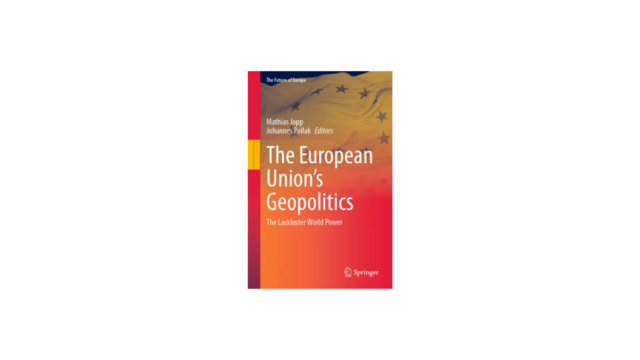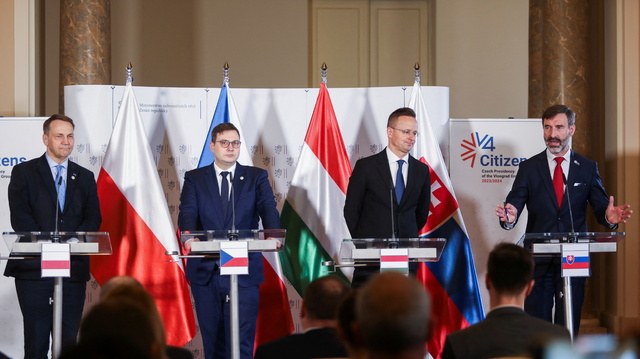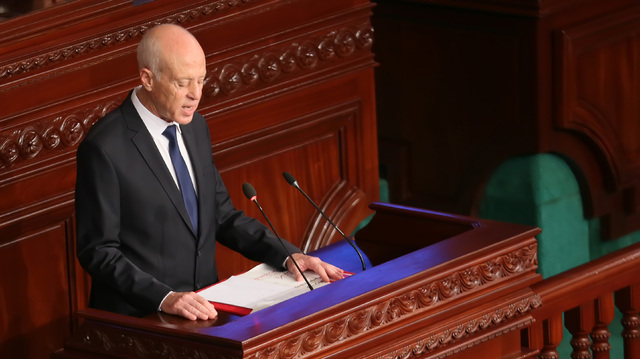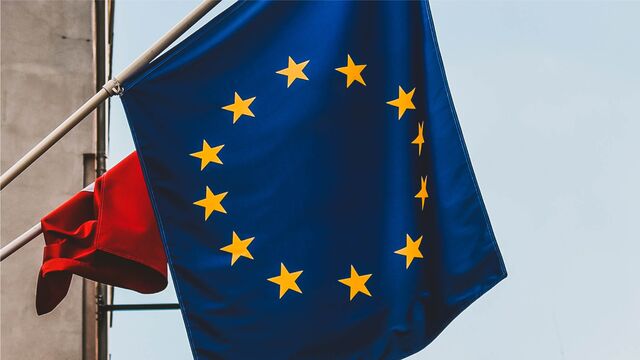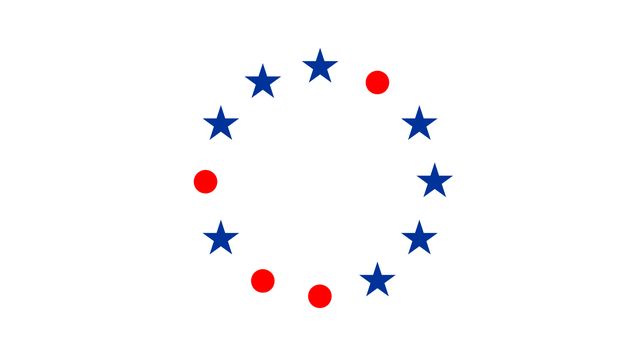Far-right Actors in Power and their Approach to Digital Sovereignty. The Case of Hungary

In her article for our yearly publication Analýzy ÚMV Asya Metodieva highlights the tension between the EU’s Digital Services Act framework and the illiberal practices of the Hungarian government, where such frameworks risk being exploited to suppress civil society.
This chapter focuses on the complexities of digital sovereignty by examining Hungary’s stance on EU initiatives such as the Digital Services Act (DSA). Despite criticism for diverging from EU values on freedom of speech and the rule of law, Hungary supports these initiatives, which allows the regime to survive and operate in a system driven by liberal democratic values. However, Hungary’s approach to digital sovereignty challenges the EU’s vision of promoting freedom of speech online, while protecting digital rights. The goal of this chapter is to showcase the far-right authoritarian practices regarding content moderation as an aspect of digital sovereignty. In the EU, such approaches manifest in countries known for systematic attacks on professional media, civil society, and freedom of speech, such as, e.g., Hungary. Hungary’s governing party, Fidesz, presents itself as a defender of national autonomy against liberal democracy and globalism. Political sovereignism in this case challenges the principles of EU integration and thus also the cohesion of the EU on policy implementation. This chapter shows that far-right authoritarian actors can strategically conceal their political sovereignism under the guise of formal adherence to the EU framework, while prioritizing the control of domestic media as a key political objective.
How Far-Right Actors Can Instrumentalize the EU framework on Digital Sovereignty
Ursula von der Leyen's 2020 definition of digital sovereignty emphasizes Europe’s ability to make autonomous decisions aligned with its values and rules, particularly regarding technology. However, the notion of sovereignty is contested within the EU, especially in the context of governments inspired by far-right worldviews. Far-right actors using political sovereignism have instrumentalized questions of digital sovereignty to promote their own agendas. They emphasize the primacy of national sovereignty over supranational governance. Thus, the far-right actors’ understanding of digital sovereignty can challenge the EU’s vision of promoting freedom of speech through protecting digital rights. The DSA’s reliance on national contexts weakens the EU’s role as a ‘macro-democracy.’ The implementation of the DSA is to a certain extent constrained by national visions of digital sovereignty, especially in cases of far-right approaches to information and freedom of speech that contradict the EU’s liberal thinking on these matters.
Hungary is one such case. Being an in-between land, it adopts semi-authoritarian practices regarding online content, while operating in the EU, a system of liberal institutions and a liberal framework. The status of internet freedom in Hungary declined from Free to Partly Free in recent years. This development is a part of a larger trend of democratic decline under the regime of Viktor Orbán. The country’s use of social media to disseminate political propaganda reflects a trend of social media co-optation, a strategy adopted by authoritarian regimes. This strategy helps the far-right political regime to survive while undermining the spirit of the DSA, which stipulates the role of states in addressing disinformation.
Hungary does not have to openly oppose the EU framework on digital sovereignty to counter the European vision for regulating social media. Media and digital freedoms in the country have been in a state of decline in the past decade. In 2024, a newly formed Sovereignty Protection Office was tasked with investigating alleged threats to Hungary’s national sovereignty. In response, the European Commission launched an infringement procedure against Hungary, as there is a concern that the new authority could be used to target independent media that receive funding from abroad. The Commission argues that Hungary’s Sovereignty Protection Act violates EU rules, including those on freedom of expression and association, as well as the right to privacy.
Since the digital system in Hungary is heavily influenced by the ruling party, the EU framework in the digital sphere is likely to have only a limited effect or applicability in the country. In a way, this is seen as a disconnect between legislation created under liberal assumptions and a member state with political sovereignist tendencies. For example, the Media Council in Hungary is not politically independent and yet it is responsible for enforcing the DSA. This highlights the challenges in implementing EU legislation tailored to protect digital rights in a political context where institutions may be compromised.
In short, as EU policy makers advocate for digital sovereignty to ensure Europe’s security in the digital space, the concept faces challenges within the EU itself. The adoption of the DSA has allowed Hungary to align itself with the European framework and present itself as sharing similar goals regarding content moderation and user protection from illegal and harmful content. Hungary did not need to leverage digital sovereignty to oppose the European approach. Yet, Hungary’s authoritarian tendencies pose various risks to the DSA’s implementation and the EU’s efforts to hold online platforms accountable. The DSA does not prevent Hungary from pursuing legislative initiatives that could contradict or undermine it in the future.
Challenges for Czechia
Hungary’s approach to digital sovereignty represents a challenge for Czechia and its foreign policy, particularly in maintaining a consensus at the EU level but also effectiveness in implementing shared policies and frameworks, like the DSA. Domestically, Czechia could be affected by the weakened resilience against authoritarian trends and disinformation campaigns in Central Europe.
As a neighboring country with a commitment to democracy, Czechia must navigate the risk of Hungary’s political sovereignism influencing regional dynamics. Otherwise, this would mean weakened collective efforts to counter disinformation and promote a safe digital space based on European values. The far-right approach to the digital space of Hungary, but also Slovakia’s turn to far-right politics complicates the regional cooperation and diminishes the transformative potential of EU digital policies. Hungary is threatening the regional Visegrád Group (V4) dynamics through diffusing far-right ideas to neighbors. The V4 used to have a strong voice as a regional bloc, often coordinating their positions to strengthen their influence on EU policies. In the new geopolitical context, Hungary has positioned itself closer to Russia, and has been implementing increasingly authoritarian practices. This created cleavages not only at the EU level but also subregional ones within Central Europe. Formats like the V4 have led Czech and Polish politicians to increasingly distance themselves from the group. The dividing line with Hungary prevents the format from being a channel for shared foreign policy visions, including those of digital affairs.
For Czech foreign policy, it is essential to advocate at EU level for compliance with the DSA and other digital regulations in the member states. Czechia could play a proactive role in fostering partnerships with like-minded EU-member states in other subregions within the EU through formats alternative to the V4 to promote digital rights and raise awareness about challenges that could undermine the EU’s vision of digital sovereignty.
The Need for Understanding the Limits of the DSA
When analyzing the DSA and its potential effects on Hungary’s media and digital environments, one should not forget that the European Union's frameworks are designed to support democratic practices. In Hungary they could potentially be used to further suppress civil society and media rather than counter disinformation or what is perceived by the EU as threats to digital sovereignty, including the influence from Russia and China. The implementation of the DSA in a political context that contradicts the liberal nature of the EU legislation limits the potential of such frameworks to address ongoing challenges related to harmful content and disinformation.
The DSA does not restrict illiberal democracies from pursuing legislative initiatives that could contradict or undermine it in the future. Hungary supports the DSA, among other EU legislative initiatives in digital affairs, because this allows the regime to survive and operate in a system driven by liberal democratic values. Thus, the existence of illiberal practices employed by far-right actors within a liberal framework creates a space for maneuvering that could bring outcomes different from what the DSA envisions.
→ Hungary’s digital sovereignty strategy contradicts EU frameworks like the Digital Services Act (DSA), which are aimed at combating harmful content. The country’s ruling party, Fidesz, and its use of disinformation for political messaging undermines the EU’s vision of a sovereign but free and pluralistic space.
→ Hungary’s political sovereignism that aligns with authoritarian practices creates divisions within the EU and Central Europe and threatens to spread far-right ideas and authoritarian tendencies to its neighbors, including Czechia. Hungary’s far-right approach to the digital space prevents a more active regional cooperation on countering disinformation and promoting a safe digital space.
→ Czechia has the option to be more proactive in monitoring Hungary’s digital policies and ensuring that democratic values are not further declining. Given the dividing lines with Hungary on foreign policy, Czechia could more assertively advocate for strict compliance with EU digital regulations, including the DSA, among others.


